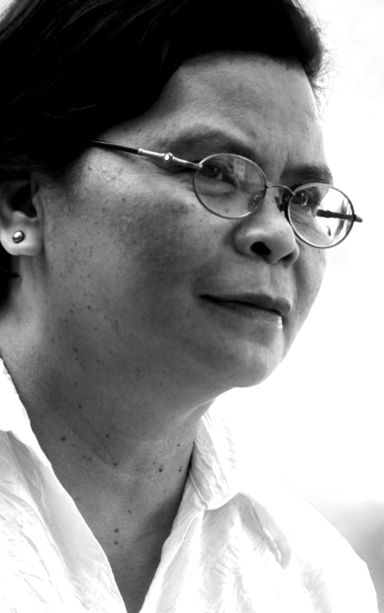
DELACERNA
For Senator Jose W. Diokno, no cause is more worthy than the cause of human rights. Human rights are more than legal concepts; they are the essence of man. They are what make man human. That is why they are called human rights: deny them and you deny man’s humanity.
In a lecture delivered at a Convocation on Human Rights in 1981, Diokno further noted that almost everywhere human rights are extolled. Yet almost everywhere they are violated, and “nowhere with less shame than in our country.” He described in concrete existential terms the increasing violations of human rights in the Philippines. He invited the people to join the fight for their human rights against a cruel and oppressive government. He admitted that what he was asking was dangerous, but “if we do not struggle with all that we have and do all that we can to vindicate our rights, we not only condemn our rights to death; we also condemn our hope and our dreams, our present, and our children’s future.”
Jose W. Diokno was a man of many causes. Among his passions were human rights which he defended at great risk, at a time when championing them was considered subversive by a militarized state. Thus, Diokno engaged in this struggle on many fronts: in the defense of political prisoners, in the investigation and analysis of violations which took him all over the country and overseas, in his speeches, in deliberations and meetings of cause-oriented groups and in his mission of educating our people.
His decision to organize the Free Legal Assistance Group (Flag) resulted directly from his incarceration when martial law was declared. He was a senator, yet he was imprisoned without charges for almost two years. If a senator of the land could be stripped of his rights so summarily, then ordinary political prisoners would be more helpless and powerless to obtain justice. He founded Flag to defend and protect the oppressed, the weak, the poor, the deprived. To the very end, Diokno never gave up. His courage inspired other lawyers and professionals to join him. He had launched a movement which gave hope to the desperate and informed his countrymen and the world that there was a promise of freedom and justice, however difficult and painful the struggle.
Diokno’s speeches and writings were carefully selected and compiled into a book entitled “A Nation for Our Children” published in 1987. This invaluable collection of Diokno’s speeches and articles serve as a monument to his vigilant pursuit and commitment to securing and protecting the quality of life of the Filipino human person in a just and humane society. It is essential that “his perceptions, insights and ideas be left behind in his footprints as living sources of inspiration for us and the future generations who will be judging the present and the future in the context of the experiences of the past.”
His presentations addressed to his three major concerns; respect for human rights, nationalism and Philippine sovereignty reflect a contagious passion shared objectively through the use of substantive facts from the causes of our past and present political and economic circumstances. His presentations are quite impassioned, but he continuously advocates active nonviolence and appeals to a “people with a conscience, people with a heart and a people with the guts to stand up and defend their rights.” Even as he rejects violence, he insists that only social change, the elimination of gross inequalities and unjust structures, can save us.
When Diokno died on Feb. 27, 1987, many people feared that the heroic work he had done for the country would not be completed and still many others regretted that the service he had rendered to his people would cease abruptly. His unfinished essay “This Land is Ours” so movingly forceful in its plea to help enrich and ennoble this land for our children and children’s children has yet to be finished by those of us left behind.
Thirty-five years after Diokno’s stint, we are faced with more challenges regarding violation of human rights: abuses on several fronts, exploitation, extrajudicial killings, violence against women and children. How ironic that the person responsible for all the atrocities that Diokno and many others fought for would be buried in the Libingan nga mga Bayani. Protests have been launched against the extrajudicial killings, and foreign protestors are called meddlers while the local protestors are labeled “temperamental brats.” What is appalling is that the violators are supported and fiercely defended and human rights activists are even threatened to be killed. More mind-boggling is that many known human rights advocates and activists are conspicuously absent and silent in the ongoing protests against human rights violations. Has change really come?